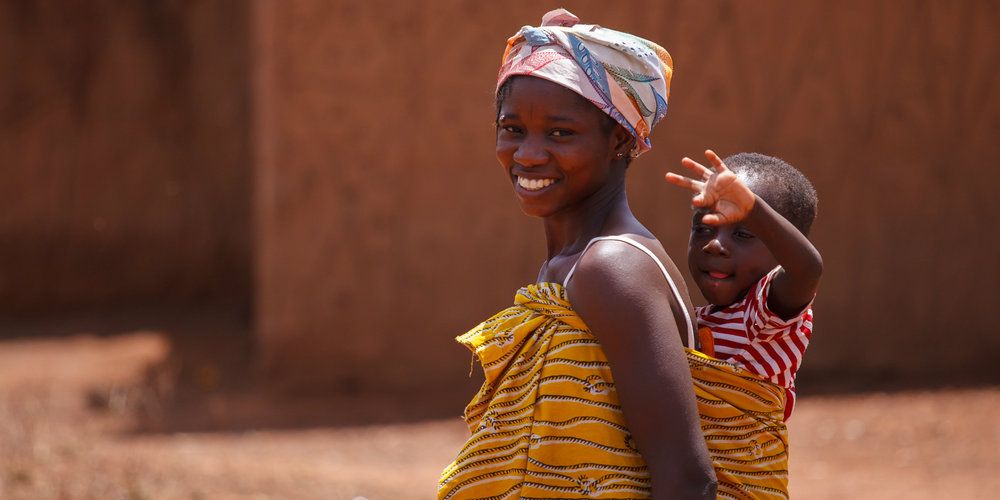Identity Crisis: On Being a Black American in the Motherland

by Connie Johnson
Last summer I was blessed with the opportunity to travel to Kenya with a group of eight colleagues and two professors as a three credit hour elective bearing the title, Kenya Immersion course. As one of few minority students pursuing a Master’s in Social Justice and Community Development I immediately jumped at the chance to travel to Africa. The course description offered each student a practical learning experience to compare and contrast Western and East African ideals of social justice. As the departure date grew closer I felt a bit of anxiety set in because I didn’t exactly know what to expect. Having been exposed to two very conflicting narratives of Africa I felt extremely divided.
On one hand Western media would have us believe that Africa is this all but God forsaken, war torn, land where malnourished babies with protruding bellies helplessly wait for rescue efforts from first world countries. My father on the other hand sketched a very different picture of Africa into my mind from the moment I was old enough to understand that I was an African American.
Every so often my father would tell me of this land far away that was filled with beautiful people who looked like me and were the first to master mathematics, science, philosophy, and literature. The image my father presented was one of vast intelligence and majesty, a stark contradiction of everything I’d ever seen on television.
From the moment my flight landed in Nairobi I felt as though I had been there before, almost immediately every fiber of my being felt safe and well acquainted. Having been raised in the South, Orangeburg, South Carolina to be exact, I was amazed at the resemblance between Kenyan and Black southern culture. I automatically knew that a full dinner plate at the end of a meal was an insult to the cook. One of my colleagues discovered this the hard way when she was given the side eye by a few women after eating a lunch with a family in a refugee camp near the Rift Valley.
Every person I met greeted me with tight, genuine double cheeked hugs, which took me back to a time and place in my childhood where elderly church mothers squeezed me, kissed my face and shoved handfuls of peppermints and butterscotch discs into my hand just because. While strolling through Kibera, Africa’s largest slum, my mind ventured back to middle school recess where I watched boys slap box and wrestle in an effort to identify their leader, separating the men from the boys. In the same manner I looked on as young street boys playfully challenged one another’s fighting skills.
Our visit to the Catholic University of Eastern Africa revealed an academic world that brought my father’s depictions of Africa to life. Students silently and intently read for hours on end in the library and under strategically placed shade trees around the campus. University faculty and staff carried themselves in a manner that seemed almost regal yet friendly. Their backs straight, heads high, they possessed a quiet confidence that spoke louder than any of their audible words.
After the introductions the class divided itself into small groups and the questioning commenced. My new colleagues were determined to know where I came from and who I was. They became almost obsessed with identifying my tribe and the African nation that I originated from. Although their interrogation was rooted in genuine interest I struggled to explain why I was as dark if not darker that most of them but spoke what they considered perfect English. I did my best to give them a crash course in African American history 101.
I never imagined that I’d be responsible for explaining that I was result of the complex business deal known as the Atlantic Slave Trade. By the fourth time I explained our history I was emotionally and mentally spent. At home in the U.S., life distracted me from coming to terms with the fact that my family lineage had been decimated centuries earlier and could never to be accurately recovered. I’m not sure what bothered me more, not knowing who my ancestors were or knowing that my lineage wasn’t deemed worthy of preservation.
Growing up less than 80 miles from Charleston SC, the entry point of 60% of all African slaves into America, I considered myself to be rather well informed about the historical struggle of Africans in America but it wasn’t a major part of my self- identity. Within that ten day voyage I both lost and found my identity as an American woman of African descent. Before this trip I couldn’t admit to myself that I was often embarrassed by being the darkest person in almost every room I entered. I’d never admit that I made “black” jokes about myself and others in high school as an attempt to beat everyone else to the punch. I’d never verbalize the jealousy I felt because my younger sister is two shades lighter than me, therefore prettier. Before taking this voyage I didn’t realize just how deep seeded my complexion complex was and the moment I did I wept bitterly.
I wept not only for myself but for the millions of other dark skinned women who have yet to admit to themselves that they struggle as well. Although it’s taken some time to heal I can now proudly look into the mirror and smile with adoration knowing that I am the descendant of a great people. I now smile for my beautiful cocoa complexioned niece and little dark girls like her who is being raised to love the skin they’re in and will never have to travel thousands of miles to feel beautiful.
Photo Credit: Sura Nualpradid / Shutterstock.com

No comments: